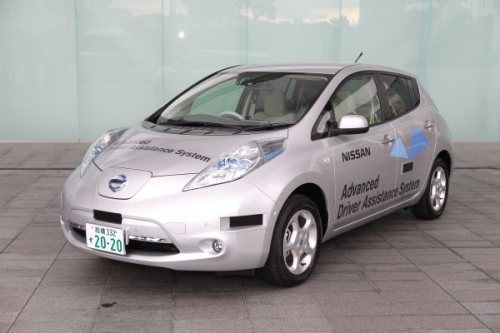The race to build the world’s first production autonomous vehicle is on, and Japan’s increasingly aging population would make an excellent market for a car that can drive itself. The Japanese government has granted an autonomous Nissan Leaf a license plate, making it the first road-legal self-driving car in the island nation.
Nissan hopes to start selling self-driving cars as soon as 2020, and this license goes a long way towards that goal. Nissan also believes that self-driving cars and electric vehicles go hand-in-hand, which is why the LEAF was chosen as the test vehicle.
For now, Nissan is going to keep testing its self-driving Leaf on public roads, analyzing the data and improving the technology until it is ready for prime time.
 Of course there are numerous legal and ethical issues to take into consideration with self-driving cars, and the competition is fierce in what could be a gigantic, trillion-dollar technology market.
Of course there are numerous legal and ethical issues to take into consideration with self-driving cars, and the competition is fierce in what could be a gigantic, trillion-dollar technology market.
Tesla Motors CEO Elon Musk hopes to deliver an electric car that can handle 90% of the driving by 2017, though Ford’s Alan Mulally seems to think the technology is a bit farther out.
Regardless, Nissan is well on its way to a self-driving car, and the Japanese government seems a bit more open-minded to autonomous vehicles than the average America.
That could give Japanese automakers a leg-up on American and European competition.








